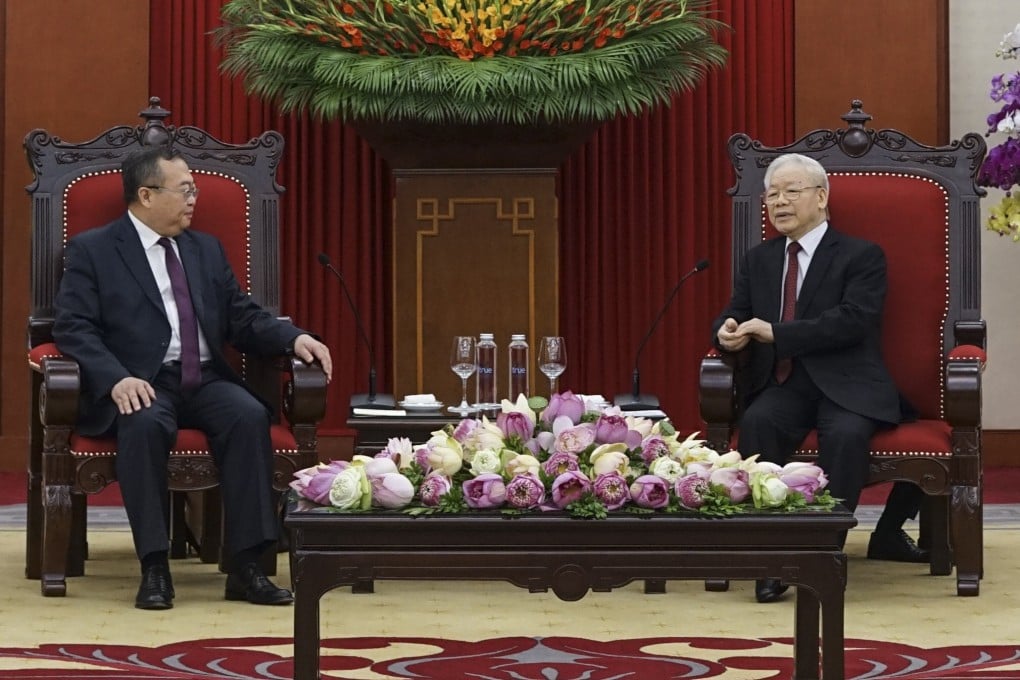Advertisement
Beijing scrambles to bolster relationship with Vietnam as Hanoi elevates ties with the US
- A visit to Vietnam by Communist Party International Department head Liu Jianchao has been used to counter growing US relationship
- Party diplomacy continues to be the ballast in China-Vietnam relations amid simmering tensions in the South China Sea
Reading Time:5 minutes
Why you can trust SCMP
67

As Vietnam’s relationship with the United States becomes a countervailing force to China amid disputes over the South China Sea and economic matters, Beijing has scrambled to send a top diplomat to shore up ties with Hanoi.
The fence-mending trip from September 4-6 by Liu Jianchao, head of the Chinese Communist Party’s International Department, who is responsible for Beijing’s inter-party diplomacy, came just days ahead of US President Joe Biden’s first visit to China’s communist-ruled neighbour on September 10.
Biden’s trip saw a historic upgrade of Hanoi’s ties with Washington to a comprehensive strategic partnership, Vietnam’s highest diplomatic status alongside China and Russia.
Advertisement
Liu also visited Cambodia and Laos, two of China’s regional allies, as part of a three-nation tour, in a trip that was seemingly held to stabilise ties with Southeast Asia amid renewed tensions over the South China Sea dispute.
Since he took office in June last year, Liu appears to have been busy, making more frequent headlines compared to his predecessors. In the past few months, he has also toured Britain, Italy, Africa and the Middle East, and he has met US ambassador to China Nicholas Burns and other visiting foreign dignitaries.
Advertisement
Liu’s visits, according to observers, served to underline the important role his department has played in helping Beijing rally support from foreign parties and political organisations, as China grapples with an increasingly hostile external environment.
Advertisement
Select Voice
Select Speed
1.00x